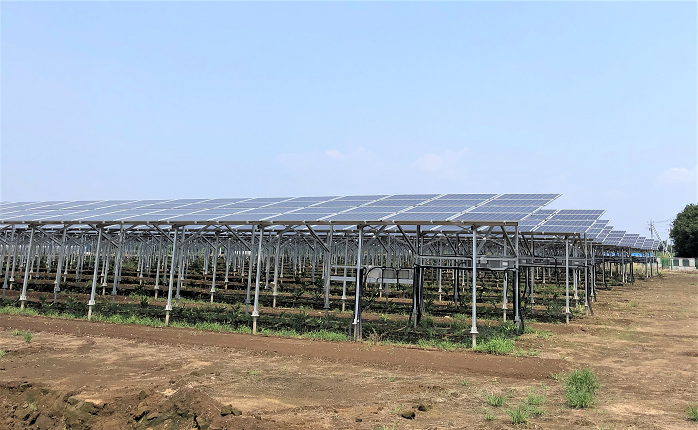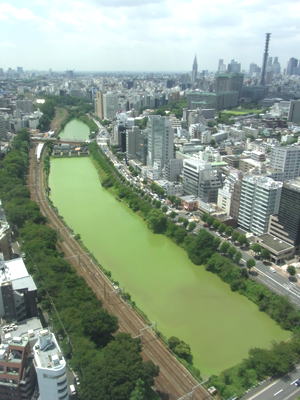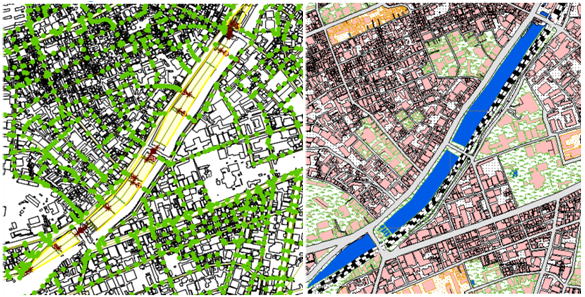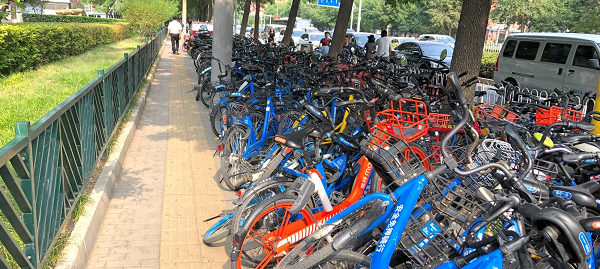MEMBERS研究メンバー
Research works and supervision are conducted at Urban Sustainability Science
Lab. with Prof. Fukushi. About all members, please visit the "Member" page of our Lab.
Current research topics can be also seen at "Research" page of our lab.
RESEARCH TOPICS研究内容
Fostering Pro-environmental Behaviors
"Citizens' pro-environmental behaviors and influential psychological factors"
When evaluating various environmental measures, in addition to calculating
the environmental load brought by the measures, it is important to clarify
the awareness of the residents who are the targets of the measures in order
to effectively carry out the measures. In our laboratory, we will take
up a wide variety of environmentally friendly behaviors (pro-environmental
behaviors) at home, clarify how much they are actually implemented by citizens
by a large-scale questionnaire surveys, and at the same time clarify the
psychological factors behind the behaviors.
◆Various pro-environmental behaviors
◆Sharing
◆Food selection(Protein source etc.)
◆Food waste prevention
◆Waste-related baheviors
◆Low-carbon behaviors
"Effect of information provision on pro-environmental behaviors"
Information provision is one of the methods to promote people's behavior.
In our laboratory, we are conducting research to clarify how various information
such as information on environmental load calculated by LCA and information
on psychological factors affect people's behavioral intentions. The following
topics are examples of related studies.
◆Effect of information provision using free papers in Seoul
◆Information provision based on Life Cycle Thinking (LCT) in Bangkok
◆Preferences on the information to tacle waste disposal in open spaces
in Phnom Penh
◆Information provision for food selection (Environment, Health, etc. )
"Environmental Education based on Life Cycle Thinking (LCT)"
Behavior change after becoming an adult is not easy. It can be said that
it is important to cultivate awareness of the environmental burden associated
with consumption as a background from primary education. In addition, the
idea of grasping the environmental load associated with product consumption
in the life cycle is a little complicated, and it can be said that education
for university students is also important. In this research, we are developing
educational material to cultivate Life Cycle Thinking (LCT) athat can be
learned while having fun.

◆Development and trial of attractive environmental education materials
◆Development of board-game based on Life Cycle Thinking
Evaluation of the impact of climate change on local industries and livelihoods and adaptation measures
This research is conducted as one of the theme of S18 project "Comprehensive Research on Projection of Climate Change
Impacts and Evaluation of Adaptation"
[Theme 4] "Projection of Climate Change Impacts on Quality of Life (QoL) of People
and Their Associated Infrastructure and Local Industries and Evaluation
of Adaptation Options"
"Perceptions about climate-change impacts and adaptation measures in local manucipalities in Japan"
_栗栖_写真1.jpg) When adapting to climate change, it is important to understand the current state of how each local government perceives the impact of climate change on its own region and what measures are being taken against it. In this research, we are proceeding with research to clarify the current situation of each region from questionnaire surveys and objective data.
When adapting to climate change, it is important to understand the current state of how each local government perceives the impact of climate change on its own region and what measures are being taken against it. In this research, we are proceeding with research to clarify the current situation of each region from questionnaire surveys and objective data.
"Climate change impacts on local tourism and adaptation measures"
In addition to agriculture, forestry and fisheries, local industries affected by climate change include tourism. Skiing and snow resorts have a serious impact on the tourism industry, but there are also various other resorts such as beaches and marine resorts, ecosystems, and festivals associated with flowering and autumn leaves. In this study, we are proceeding with categorization based on the tourism resources, assessment of the impact of climate change, and examination of adaptation measures.
"Development of Quality of Life (QoL) evaluation feamework and Climate change impacts on QoL"
Quality of life (QoL) in the region is affected by a number of factors,
some of which are affected by climate change and some of which are not.
In this study, after constructing a model that can evaluate the QoL of
a region, we evaluate the climate change impact using that model and are
studying adaptation measures that can maintain and improve the QoL.
Risk communication

In civil life, it can be seen that there is a gap in information and understanding between the technology provided by experts and the citizens who use it. Our laboratory takes risk communication as an example of communication with citizens, and examines how to convey risks to deepen the understanding of citizens.
Low-carbon urban structures
When considering regional mitigation measures, not only people's actions but also regional management perspectives such as attempts to utilize local resources and the introduction of renewable energy are important. Our laboratory has conducted the following research so far.
◆Evaluation of solar sharing (agro-photovoltics)
◆Evaluation of the effect of energy interchange in the complex block
◆Evaluation of renewable energy introduction

Evaluation of water environment

River fronts are important amenity spaces in urban areas. However, perceptions
on rivers vary from person to person. For conductiong cost-benefit analysis,
value and valuation structure of water-front must be revealed.
revealed.
We try to quantitatively evaluate the valuation structure using online
questionnaire, conjoint analysis, structural equation modeling, latent
class analysis, etc.
Castle moats are important urban water-fronts. However, many moats are
closed water bodies and the water quality is not so good. The moat of Edo
castle receives water only from rain and CSO (combined sewer outflow) and
the water quality is also bad(right photo shows severe algal bloom in summer).
In urban areas, reclaimed water can be one of the most stable water sources.
We evaluate the effects of introduction of reclaimed water on the water
quality of the moat and also evaluate the cost and people's impressions.

CSO simulation using Infoworks and GIS
